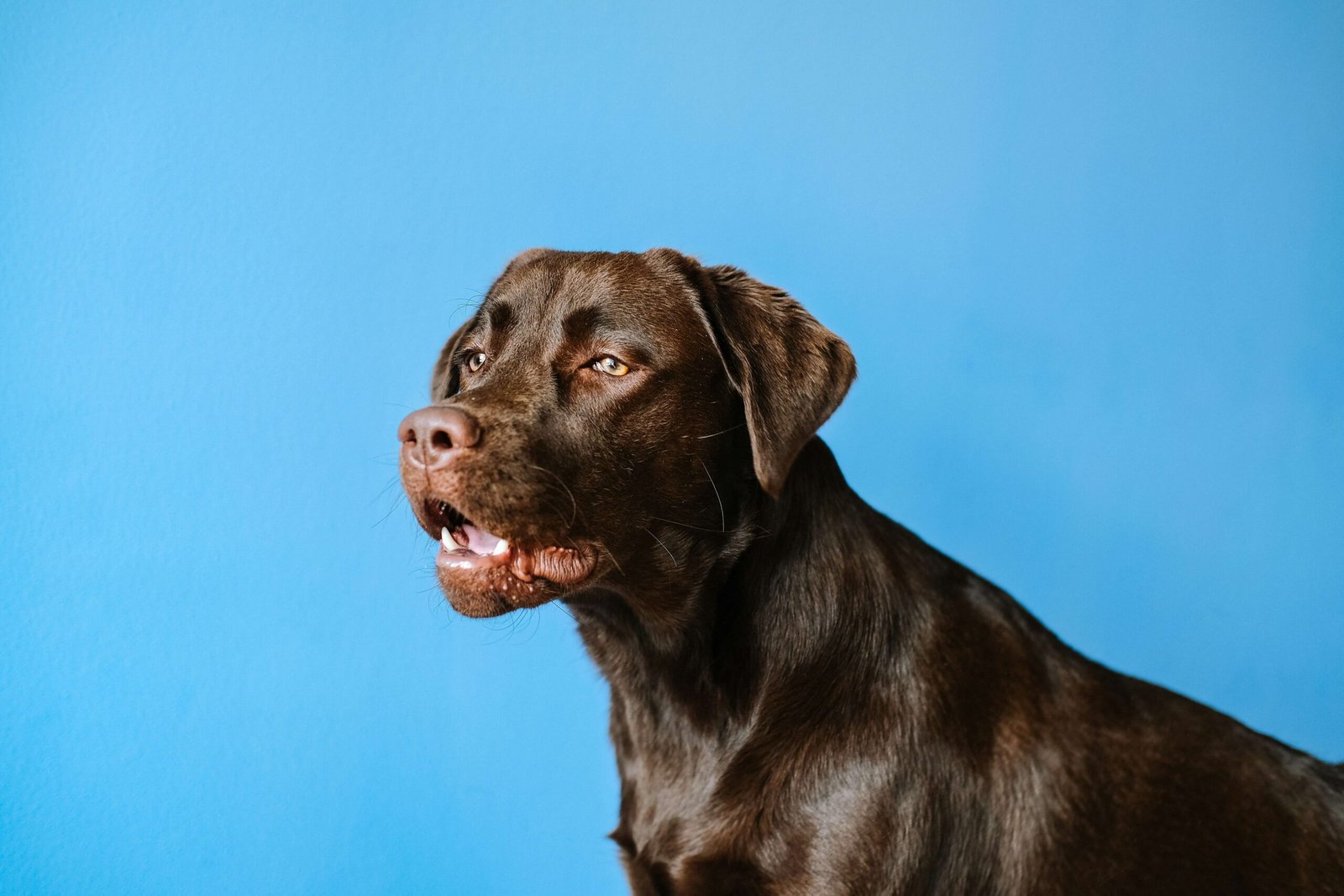Why Does My Dog Lick My Ears? Decoding This Quirky Behavior
If you’ve ever found yourself wondering, “Why does my dog lick my ears?” you’re not alone. This peculiar habit is more common than you might think and often leaves pet owners both amused and curious. While it may seem strange or even a little gross at times, ear-licking is rooted in your dog’s instincts, emotions, and unique way of communicating. From showing affection to seeking attention, there are several reasons behind this behavior. In this blog post, we’ll explore the fascinating world of canine psychology to uncover why your furry friend finds your ears so irresistible—and what you can do to manage it if needed.
The Science Behind Why Dogs Lick Ears
Dogs use their mouths and tongues for much more than eating. Licking is a natural behavior that serves various purposes in their lives. Here’s a breakdown of some scientific explanations for why your dog might be licking your ears:
Exploration Through Taste and Smell
A dog’s sense of smell is far superior to ours, and they also gather information through taste. Your ears may carry scents or traces of salt from sweat, which could intrigue your pup.Bonding Behavior
Licking is an instinctual way for dogs to bond with their pack members. By licking your ears, your dog may be expressing closeness and trust.Seeking Comfort
The act of licking releases endorphins in dogs, making them feel calm and content. If your dog feels anxious, they might turn to ear-licking as a soothing activity.Attention-Seeking Tactic
If your dog has learned that licking your ears gets a reaction—whether laughter, scolding, or physical interaction—they may repeat the behavior to engage with you.Medical Reasons
Sometimes, excessive licking can indicate underlying health issues such as allergies, nutritional deficiencies, or skin conditions. It’s worth consulting a vet if the behavior seems unusual.
Understanding these factors can help you better interpret your dog’s intentions and respond appropriately. Remember, every dog is different, so observing their overall behavior will give you deeper insights into why they engage in this quirky habit.
Common Triggers That Encourage Ear-Licking
While the reasons above explain the general motivations behind ear-licking, certain triggers can make your dog more inclined to focus on this specific behavior. Below are some common scenarios that might encourage your pup to target your ears:
Strong Scents Around the Ears
Products like shampoos, perfumes, or hair products can leave lingering smells around your ears, attracting your dog’s curiosity.Saltiness of Human Skin
Human skin naturally contains salts that dogs find appealing. The thin skin around the ears may retain these flavors more prominently.Physical Proximity During Cuddles
When you’re close to your dog during cuddle sessions, your ears become easily accessible targets for licking.Positive Reinforcement
If you’ve unintentionally rewarded the behavior by laughing, petting, or giving treats after ear-licking, your dog may associate it with positive outcomes.Boredom or Lack of Stimulation
Dogs who don’t receive enough mental or physical stimulation may resort to repetitive behaviors like licking to entertain themselves.
By identifying potential triggers, you can take steps to redirect your dog’s energy toward healthier habits. Whether it’s providing engaging toys or ensuring proper hygiene, small changes can make a big difference.
Check this guide 👉Understanding Dog Ear Tumors: Best 7 Health Tips!
Check this guide 👉Understanding the Tick on Dog Ear: Best 7 Health Tips!
Check this guide 👉Why Do Dogs Lick Other Dogs Ears? Best 7 Behavior Tips!

Reasons for Ear-Licking | How to Address It |
|---|---|
Exploring scents or tastes | Keep ears clean and free of strong odors |
Bonding and affection | Offer alternative ways to show love |
Seeking comfort | Provide calming activities or distractions |
Attention-seeking | Ignore the behavior instead of reinforcing |
Boredom or lack of stimulation | Increase exercise and playtime |
Health Concerns Related to Excessive Ear-Licking
While occasional ear-licking is usually harmless, persistent or aggressive licking can sometimes signal underlying problems. Consider the following possibilities:
Allergies
Allergic reactions to food, environmental factors, or grooming products can cause itchiness, leading dogs to lick excessively.Nutritional Deficiencies
A lack of essential nutrients in your dog’s diet might drive them to seek out unusual sources of minerals or vitamins.Dental Issues
Pain or discomfort in your dog’s mouth could prompt them to lick other surfaces, including your ears, as a coping mechanism.Skin Conditions
Irritated or inflamed skin can make licking feel soothing, even if it’s directed at something unrelated like your ears.Behavioral Disorders
Anxiety, stress, or compulsive behaviors can manifest as repetitive licking, requiring professional intervention.
If you notice any signs of distress or abnormal behavior, consult your veterinarian promptly. Early diagnosis and treatment can prevent further complications.
Tips to Manage or Redirect Ear-Licking Behavior
Managing your dog’s ear-licking doesn’t have to be complicated. With patience and consistency, you can teach them healthier alternatives. Here are some practical tips:
Distract with Toys
Offer interactive toys or chewable items to keep your dog occupied and redirect their focus away from licking.Establish Boundaries
Gently but firmly say “no” or “stop” when your dog starts licking, then reward them for stopping.Increase Exercise
Regular walks, runs, or play sessions can burn off excess energy, reducing the likelihood of boredom-driven behaviors.Maintain Good Hygiene
Clean your ears regularly to minimize tempting scents or residues that might attract your dog.Use Positive Reinforcement
Reward your dog for good behavior, such as sitting calmly near you, instead of reinforcing unwanted actions.
Consistency is key when training your dog. Over time, these strategies can help curb ear-licking while strengthening your bond.
Social and Emotional Aspects of Ear-Licking
Dogs are inherently social animals, and their behaviors often reflect their emotional state or desire for connection. Ear-licking can be a way for your dog to express emotions or seek reassurance. Here’s how this behavior ties into their social and emotional needs:
Affectionate Grooming
In the wild, dogs groom each other as a sign of care and companionship. Licking your ears might be your dog’s version of affectionate grooming.Seeking Reassurance
When feeling uncertain or stressed, some dogs turn to licking as a way to self-soothe while also seeking comfort from their human.Pack Mentality
Dogs view their human families as part of their pack. Licking your ears could be their way of reinforcing this bond and maintaining hierarchy within the group.Expression of Joy
Happy and excited dogs may lick as a way to show their enthusiasm, especially during moments of closeness like cuddling or playing.Response to Tone or Energy
If you sound cheerful or playful, your dog might interpret this as an invitation to engage, leading to behaviors like ear-licking.
Understanding these emotional drivers highlights the depth of your dog’s attachment to you. By recognizing their intentions, you can respond in ways that nurture their emotional well-being.
Environmental Factors Influencing Ear-Licking
The environment plays a significant role in shaping your dog’s behavior, including their tendency to lick your ears. Certain external factors can make this habit more pronounced or frequent. Consider the following influences:
Scent Cues in Shared Spaces
Strong smells in your home, such as cleaning products or cooking odors, might draw your dog’s attention to areas like your ears.Weather Changes
Humidity or heat can cause increased perspiration, making your skin more appealing to your dog due to its salty taste.Proximity During Sleep or Rest
If your dog sleeps near your head, they may develop a habit of licking your ears simply because they’re within reach.Shared Objects or Surfaces
Items like pillows, blankets, or hats that carry your scent might encourage your dog to explore your ears more often.Routine-Based Behavior
Dogs thrive on routines, and if ear-licking has become part of their daily interactions with you, they may continue out of habit.
By identifying environmental triggers, you can make adjustments to minimize unwanted behaviors while still fostering a loving relationship.
Training Techniques to Address Ear-Licking
If your dog’s ear-licking becomes excessive or bothersome, training can help redirect their focus. Consistent techniques and positive reinforcement are key to modifying this behavior effectively. Below are some strategies to consider:
Teach the “Leave It” Command
Use treats to train your dog to stop unwanted actions when instructed. This command can be applied to prevent ear-licking.Reward Calm Behavior
Praise and reward your dog when they remain calm and avoid licking, reinforcing the idea that good behavior earns positive outcomes.Introduce Alternative Activities
Provide puzzle toys, chew bones, or interactive games to keep your dog mentally stimulated and less focused on licking.Practice Desensitization
Gradually expose your dog to situations where they might feel compelled to lick, rewarding them for staying calm instead of engaging.Be Patient and Consistent
Changing a behavior takes time. Stay consistent with your training efforts, and avoid punishing your dog, as this can create anxiety.
Training not only helps manage ear-licking but also strengthens the bond between you and your dog. With patience and dedication, you can guide them toward healthier habits while maintaining a happy household.
Frequently Asked Questions About Dog Ear-Licking
Is it normal for dogs to lick human ears?
Yes, it’s relatively common and often stems from curiosity, affection, or habit.
Should I let my dog lick my ears?
Occasional licking is fine, but frequent or forceful licking should be discouraged to avoid irritation or infection.
Can ear-licking harm my dog?
Not directly, but if done excessively, it could indicate underlying health or behavioral issues that need attention.
How do I stop my dog from licking my ears?
Use distraction techniques, establish boundaries, and provide alternative forms of engagement.
When should I see a vet about this behavior?
Consult a vet if the licking becomes obsessive, causes discomfort, or coincides with other symptoms like lethargy or appetite changes.
Final Thoughts: Embracing Your Dog’s Unique Habits
Every dog owner knows that our furry companions come with their own set of quirks—and ear-licking is just one example. Understanding why your dog engages in this behavior helps foster empathy and strengthens your connection. Whether it’s driven by affection, curiosity, or something else entirely, addressing it with patience and care ensures a harmonious relationship. By staying attentive to your dog’s needs and maintaining open communication, you can enjoy all the joys of pet ownership without letting minor habits overshadow the bigger picture. After all, isn’t that unconditional love what makes having a dog so special?
Do Cats Have Taste Buds? Best 7 Expert Tips! – Discover how cats experience flavors and why their taste is so unique.
Do Dogs Have Taste Buds? Best 7 Expert Tips! – Discover how dogs experience taste, their preferences, and what it means for their diet and health.
Can Cats Taste Sweet? Best 7 Expert Tips! – Discover why cats can’t taste sweetness, how it affects their diet, and tips to keep them healthy and happy.
Can Dogs Taste Sweet? Best 7 Expert Tips! – Discover how dogs perceive sweetness, which foods are safe, and tips to manage their sweet cravings responsibly.





